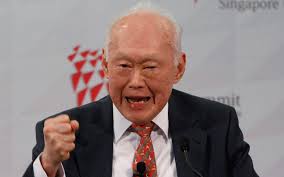In an earlier blog Greg Dyke and John Birt: lessons in leadership I explored the dramatic difference in leadership style between two previous Director Generals of the BBC: John Birt, and his successor, Greg Dyke.
I used this case history recently in a morning session on leadership development at Oxford Saïd Business School, and it reminded me of how dramatically—and how remarkably quickly and effectively—Greg Dyke changed the mood at the BBC when he first took over.
It also reinforced what a tragic loss it was for the BBC when Dyke became a victim of the political shenanigans surrounding the infamously (and allegedly) ‘sexed up’ Labour government dossier about Saddam Hussein’s Weapons of Mass Destruction published in the run-up to the War in Iraq (see The Hutton Inquiry). Dyke resigned, having failed to gain the support of a supine board of BBC Governors.
The BBC had been accused of showing ‘defective’ editorial management processes for having allowed a journalist to broadcast accusations against the government, despite the fact that these accusations seem to have been well-founded and (dare one say it?) true.
As Dyke said after his resignation:
‘This report casts a chill over all journalism, not just the BBC’s. It seeks to hold reporters, with all the difficulties they face, to a standard that it does not appear to demand of, for instance, Government dossiers.’
But I digress. These are the key conclusions that I drew in my earlier blog about the leadership lessons that could be drawn from ‘The Greg Dyke Way’.
Don’t get obsessed with the planning
Some leaders become obsessed with planning. Planning is important, but there is never a perfect plan. In the time that it takes to keep polishing and perfecting the plan of action, things will have moved on, events will have altered the general scenario and—perhaps most importantly—opportunities will have been wasted.
Plan enough, and then follow your (well-informed) instincts. More planning won’t help you find the answer: you may be right and you may be wrong, but if you don’t actually do it—and do it at the critical moment—there will never be an outcome for you to learn from.
Efficiency has a purpose: explain it
As with planning, some leaders become obsessed with efficiency. Organisational efficiency and cost-savings are essential, but they are only the means to an end. Most of your colleagues will experience them as pain, not gain. Colleagues need to understand the long-term purpose of this pain; they need to agree, at a fundamental, emotional level, that the pain is worth it. This can only happen when there is high-quality, consistent and persistent communication from the leader about the purpose of the changes.
When colleagues truly understand what that purpose is, and understand the necessity of a given course of action, they will undergo substantial upheavals and even the pain of job losses with remarkable tolerance. More than that, they will put their shoulders willingly to the wheel of change. ‘Efficiency’ that is apparently for its own sake is meaningless and is quite rightly resisted and resented.
Give people a vision that makes them feel good
Forget about vague aspirations and grand slogans: colleagues need something fundamental, concrete and realistic that will get them out of bed and excited about coming to work; something simple and motivating that they can hang everything else on; something that informs their every decision and makes them feel good about their working lives.
Some good examples might be: pride in the organisation’s overall achievements; feeling part of something bigger than oneself; feeling that one is a valued part of a greater cause; the pleasures of camaraderie; the rewards of shared endeavour.
Tell a story; paint a picture
Teams need detail to help them ‘colour-in’ the broad vision. Highlight the strengths and successes of your organisation: dig into the archive, find good stuff and spread it around. People are far more likely to remember a good story or an inspiring video than they are to remember your words—no matter how well-crafted and inspirational they are. Find some compelling images and ideas that will stick in people’s minds. Engage people’s emotions. Give them that reason to come to work.
Touch a chord
All change involves doing something differently, and we all resist change. People don’t go the extra mile because of the compelling logic of our arguments—much as we would like to believe that they do—they do something different only if we have managed to touch some important chord that resonates in their real lives. Show colleagues that the organisation to which they devote much of their waking hours plays a significant role in the world; remind them that their contribution is essential and valued. Get them involved.
You don’t need to be an expert in BBC corporate history to get the drift of the initiatives that Greg Dyke used to get his colleagues on side: ‘One BBC’; ‘Making it Happen’; ‘The most creative organisation in the world’; ‘Cut the Crap’.
You get the picture.




